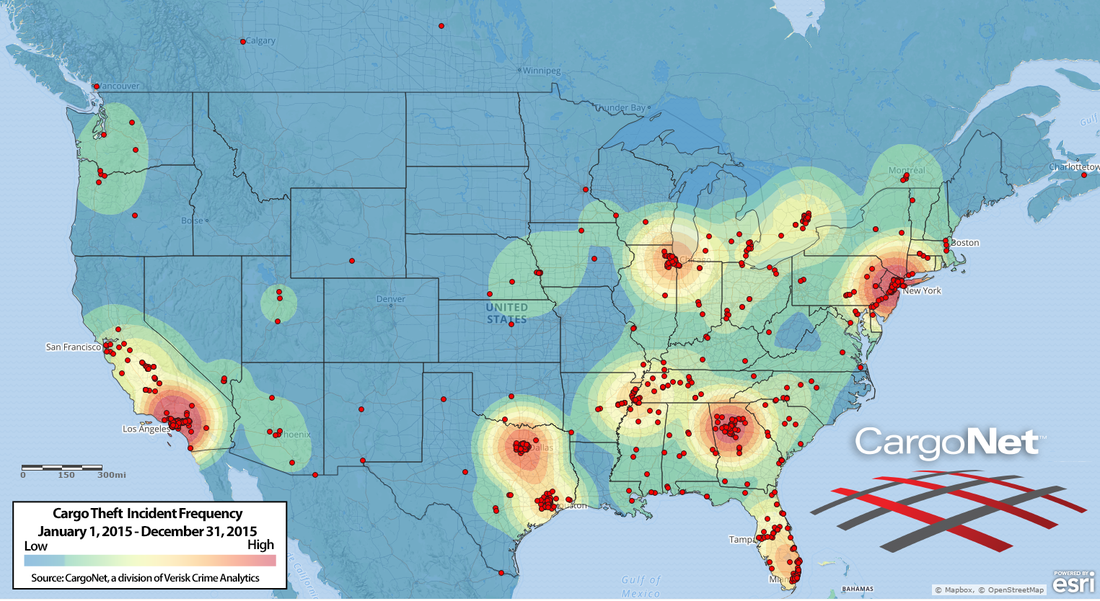|
JERSEY CITY, N.J. — In 2015, the CargoNet® Command Center received and logged more than 1,500 incidents of cargo theft, heavy commercial vehicle theft, and identity theft of trucking companies in the United States and Canada. 881 incidents involved theft of cargo. CargoNet received a loss value on 53% of reported cargo thefts. $98 million in cargo was stolen in those 470 thefts. The average cargo theft loss value per incident was $187,490. If combined with the known loss value, we can estimate the value of stolen cargo in all 881 incidents to be $175,303,399. CargoNet recorded 10 cargo thefts worth more than $1 million this year.
California reported the most cargo thefts of any state or province. CargoNet recorded 158 theft incidents with a total loss value of $18.7 million. Texas was close behind with 130 recorded theft incidents and $12.2 million in cargo stolen. Texas was followed by Florida (98 thefts), Georgia (97 thefts), and New Jersey (80 thefts). It’s important to note that some states had noticeable increases or decreases in cargo theft from quarter to quarter. New Jersey is a good example of this. CargoNet had recorded 34 thefts in first-quarter 2015 for New Jersey, but by fourth-quarter 2015 the number had dropped to just 12 thefts. In contrast, thefts have increased in Tennessee each quarter. In 2015 49% of reported cargo theft incidents occurred between Friday and Sunday. Friday was the most common day for cargo theft: 21% of all cargo theft occured on Friday. Cargo theft also spiked briefly on Monday (16% of all cargo theft incidents). We took a closer look at our data, and it seems cargo theft groups prefer to steal Monday evening into Tuesday morning more than Sunday night into Monday morning. Wednesday was the least common day. Only 9% of cargo thefts occurred on a Wednesday. Food and beverage items were again the most stolen commodity. Of the cargo theft incidents that CargoNet received, 28% involved theft of food and beverage cargo. This was significantly more than the next highest categories, electronics and household, each of which accounted for 13% of stolen items. CargoNet is a division of Verisk Crime Analytics, a Verisk Analytics (Nasdaq:VRSK) business. Original Article
0 Comments
By Today's Trucking Staff
TORONTO, ON — In security circles, the Greater Toronto Area has come to be known as the “shopping triangle” for cargo thieves who continue to wreak havoc on the Canadian trucking industry to the tune of $5 billion per year, snapping up everything from electronics to metals, by any means necessary. Read Article |
Categories
All
Archives
February 2024
|
©2024 Transport Security, Inc. 820 South Pine Street Waconia, MN 55387 952-442-5625 enforcer@transportsecurity.com


 RSS Feed
RSS Feed